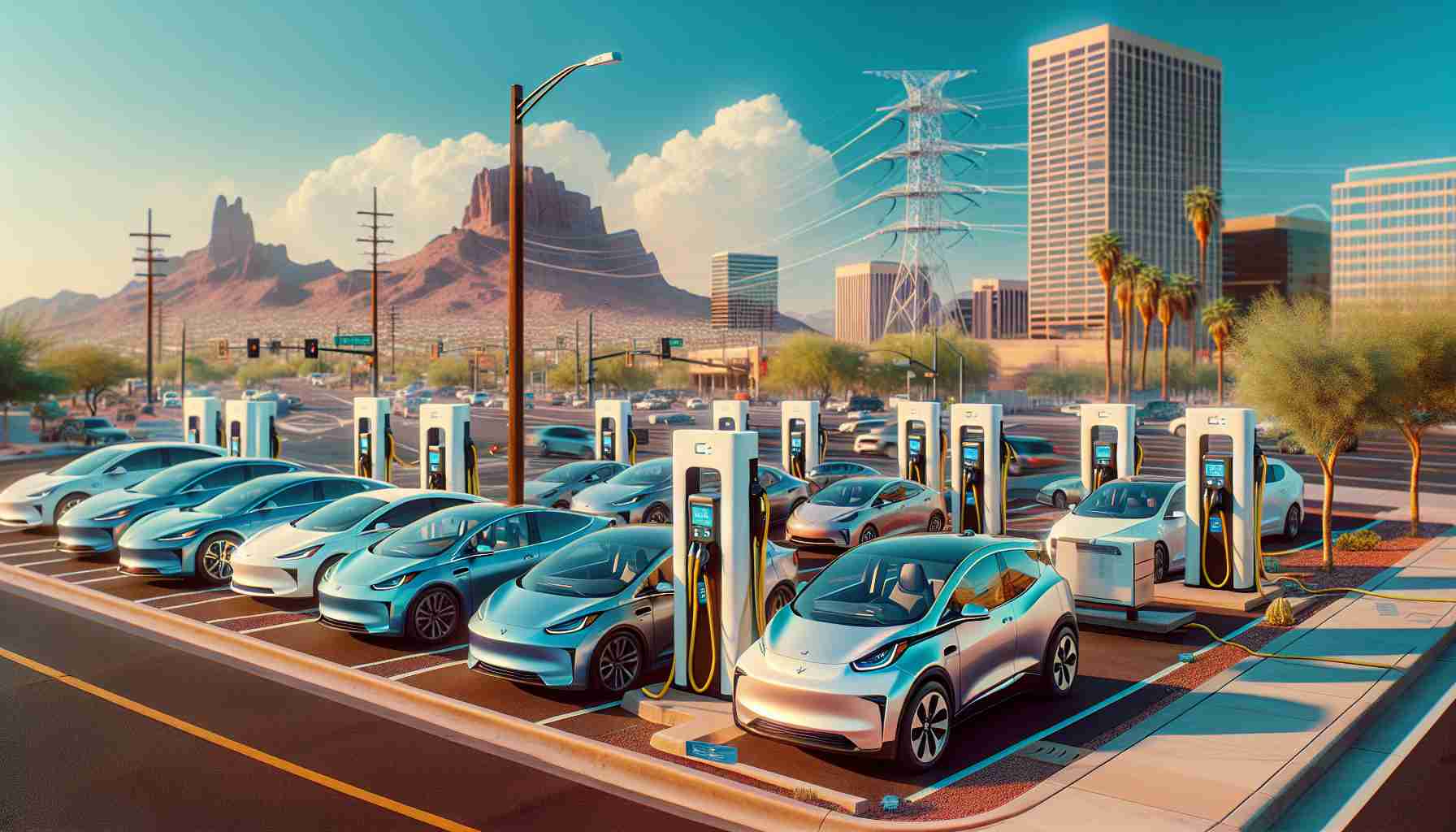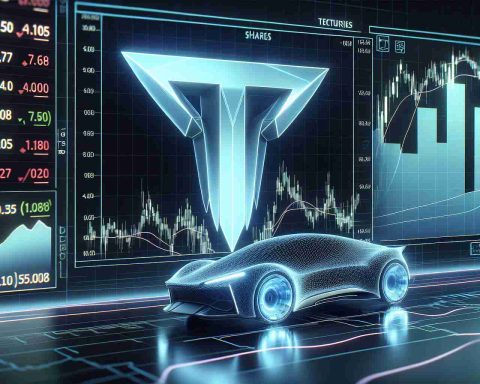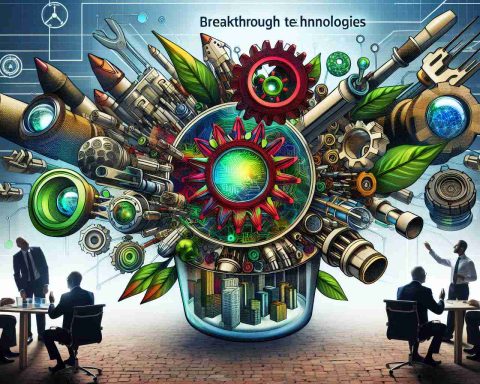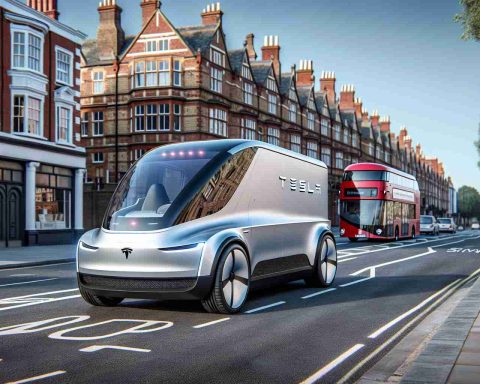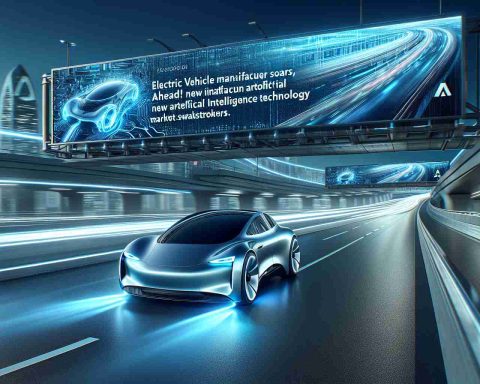Phoenix Takes a Major Step Toward Sustainable Transport
The Biden administration has unveiled a significant $15 million grant aimed at enhancing Phoenix’s electric vehicle (EV) charging infrastructure. This fund will enable the installation of 150 public EV charging ports throughout the city, which includes two new stations in Ahwatukee at the Pecos Community Center and Mountain Vista Park.
U.S. Representative Greg Stanton highlighted that this initiative is part of a broader plan to support 26 multi-modal charging ports, 10 portable solar-powered stations, and solar-covered parking structures for city-run multifamily housing.
Mayor Kate Gallego expressed pride in this federal investment, describing it as a vital step toward the city’s ambitious goal of accommodating 280,000 electric vehicles by 2030 while also focusing on underserved communities. Alongside this grant, Phoenix also secured $1.4 million for a project aimed at enhancing a vital 3.25-mile walking and cycling path that connects neighborhoods, furthering the city’s commitment to sustainable urban mobility.
The installation timeline for these Ahwatukee charging stations will depend on collaboration with the U.S. Department of Transportation for essential logistics. The new charging stations will be open for use by all EV owners, who will cover the electricity costs and a minor maintenance fee.
This initiative is seen as crucial to reshaping the future of transportation in Arizona, promoting clean energy, and improving air quality while creating job opportunities for residents.
Wider Implications of Phoenix’s Push for Sustainable Transport
The recent investment in Phoenix’s EV charging infrastructure symbolizes a transformative shift in urban mobility, with potential reverberations across society, culture, and the global economy. As cities around the world grapple with rising pollution and climate change, Phoenix’s commitment to sustainable transport positions it as a leader in promoting clean energy solutions. With an ambitious target of accommodating 280,000 electric vehicles by 2030, this initiative underscores the urgent need for cities to adapt to decreasing fossil fuel usage.
Engaging underserved communities with accessible charging solutions reflects a broader cultural commitment to equity in green infrastructure. This inclusivity not only empowers local neighborhoods but also encourages the transition to environmentally-friendly practices across socioeconomic lines. The impacts extend beyond Phoenix, as cities nationwide watch this model in urban planning, potentially influencing future legislation and funding allocations.
Furthermore, the environmental effects of increased EV usage cannot be overstated. By enhancing air quality and reducing greenhouse gas emissions, Phoenix is aligning itself with global sustainability goals, ultimately influencing international climate agreements. As trends shift toward electric mobility, industries related to EV production, solar energy, and sustainable urban design could see substantial economic growth, potentially reshaping job markets and stimulating local economies.
In the long term, the implications of this initiative may catalyze a systemic transformation in urban transit, redefining societal norms around transportation while paving the way for healthier, more resilient communities.
Phoenix Powers Ahead: A Sustainable Future with Electric Vehicle Infrastructure
Introduction
Phoenix is making strides toward a more sustainable transport system with a substantial investment from the Biden administration. A $15 million grant is now in play, designed to bolster the city’s electric vehicle (EV) charging infrastructure significantly. This initiative is crucial in promoting eco-friendly transportation solutions and enhancing urban mobility for residents.
Key Highlights of the Grant
– Installation of Charging Ports: The grant will facilitate the installation of 150 public EV charging ports across Phoenix, essential for accommodating the growing number of electric vehicles.
– New Charging Stations in Ahwatukee: Among the new installations, two significant charging stations will be established in Ahwatukee at the Pecos Community Center and Mountain Vista Park, enhancing access for local EV users.
– Expanded Features: This project will also include the development of 26 multi-modal charging ports, 10 portable solar-powered stations, and innovative solar-covered parking structures designated for city-run multifamily housing.
Long-Term Goals
Mayor Kate Gallego emphasized that this investment aligns with Phoenix’s ambitious target of hosting 280,000 electric vehicles by the year 2030. The initiative not only aims to expand the charging network but also focuses on supporting underserved communities, ensuring that the benefits of clean energy transportation reach all residents.
Enhancements to Urban Mobility
In addition to the EV charging initiatives, Phoenix has secured $1.4 million to enhance a vital 3.25-mile walking and cycling path. This development reflects the city’s commitment to improving sustainable mobility and encouraging healthier transportation options among its residents.
Installation and Maintenance
The installation timeline for the new Ahwatukee charging stations will be contingent on collaboration with the U.S. Department of Transportation. Once operational, all EV owners will have access to these facilities, responsible for their electricity usage and a minimal maintenance fee.
Benefits of the Initiative
# Pros
– Sustainability: Supports a shift towards electric vehicles, contributing to lower greenhouse gas emissions.
– Improved Air Quality: Encourages the use of clean energy, thereby enhancing urban air quality.
– Job Creation: The initiative promises to create local job opportunities in the installation and maintenance of charging stations.
# Cons
– Initial Costs: The initial setup and maintenance costs remain a concern for some stakeholders.
– Electricity Costs: Users will need to cover their electricity costs, which could deter some potential EV users.
Conclusion
This significant investment in Phoenix’s EV infrastructure marks a step forward in sustainable urban transport, with implications for environmental health and community wellbeing. As cities across the nation pivot towards greener technologies, Phoenix stands as a model for others, underlining the importance of innovation in achieving sustainability goals.
For more information on sustainable transport initiatives, visit Phoenix City Government.

